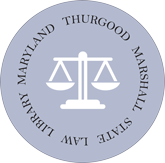You might think your library has limited or no resources at all for law-related questions. Before you move forward with other resources, check – most public libraries have access to legal information, either right there in the library, or a short distance down the road.
- Check your system’s catalog. Look in particular for publications by Nolo or Sphinx, both publishers of legal information for non-lawyers (see Online Sources for Getting Started for a description of Nolo’s free online encyclopedia). Your library may even purchase and keep updated publications from the State Bar Association, the National Consumer Law Center or other organizations focused on law. Note what is in your own branch, and what may be available from other branches in your system.
- Check your system’s database collection. Public library database access may include a number of helpful resources. Look for databases like Gale Legal Forms, for sample forms; or Gale eBooks, which includes a collection of law-based titles, helpful for school homework and National History Day projects. Sometimes, there may be a subscription to a limited version of Westlaw or Lexis.
- Check neighboring libraries’ catalogs. Local community colleges often have paralegal or law-related courses, and have corresponding collections in their libraries. Area universities similarly may have public access to their extensive collections.
- Check for your nearest public law library. Maryland has a number of law libraries open to the public. These include, in addition to the State Law Library in Annapolis, libraries in the Circuit Courts: 21 of the 24 Circuit Courts have a law library, and of those, eight have librarians who can help connect you to further resources. And the Universities of Maryland and of Baltimore both have law libraries generally open to the public. If one is close to you, arrange for a visit so you can familiarize yourself with their collections and services.
Last revised 12/12/2019

